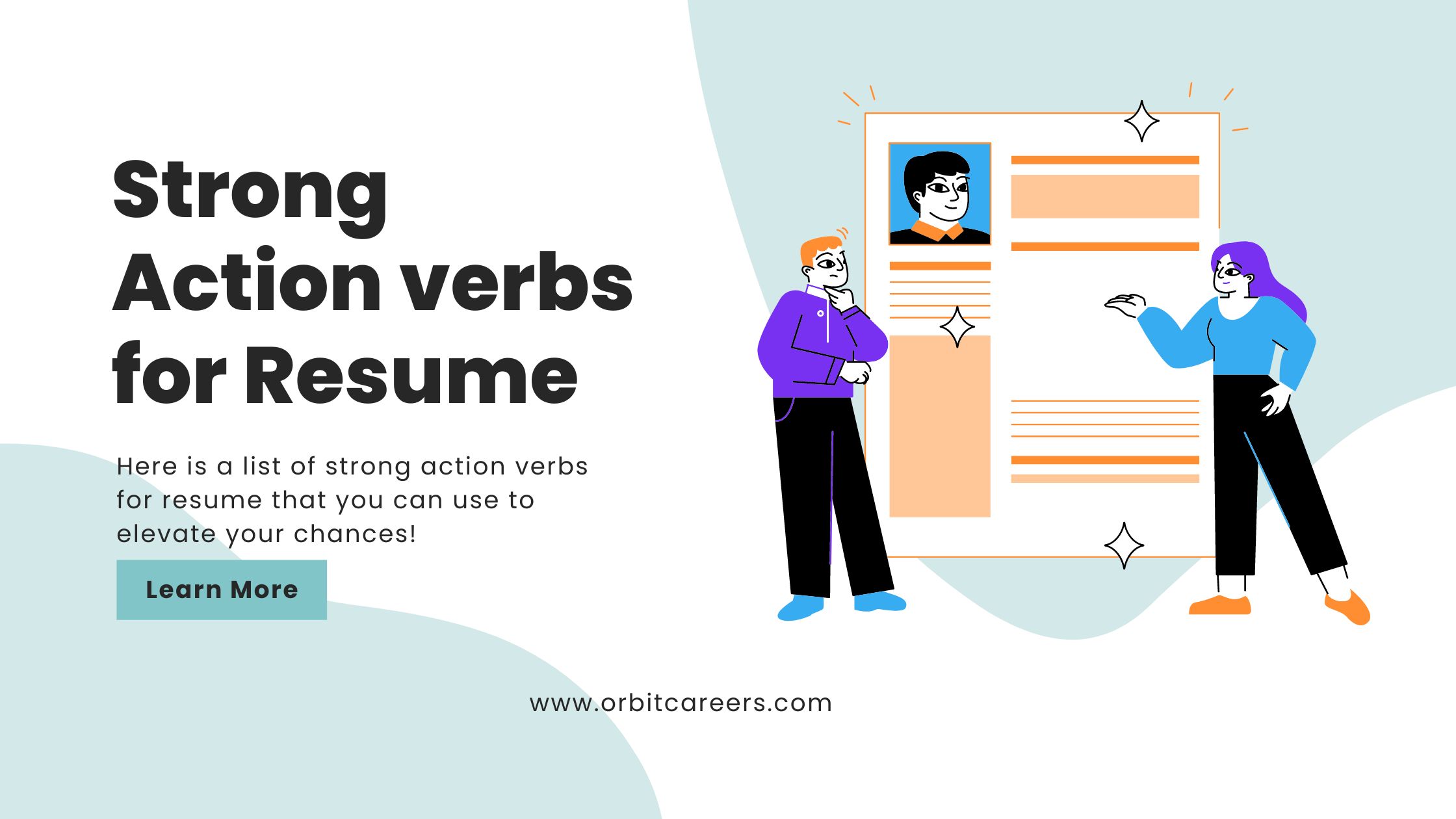In the competitive job market, crafting a compelling resume is crucial for catching the attention of hiring managers and securing your dream job. One key element that can make a significant impact on the effectiveness of your resume is the use of strong action verbs. These verbs not only add vigor and dynamism to your document but also help convey a sense of accomplishment and responsibility. In this blog post, we will delve into the importance of strong action verbs for resumes and provide a comprehensive list to help you revamp your professional narrative.
Why are Action Verbs Important?
Before we dive into the extensive list of strong action verbs for resume, let’s understand why they are essential for creating an impactful resume.
Capturing Attention:
- Action verbs in a resume serve as the first impression your resume makes on a hiring manager. Instead of using generic or passive language, incorporating dynamic verbs instantly grabs attention and communicates your ability to take initiative.
Quantifying Achievements:
- Strong action verbs are instrumental in quantifying your achievements and responsibilities. They add specificity to your accomplishments, providing a clearer picture of your contributions to previous roles.
Conveying Confidence:
- Words carry power, and using strong action verbs demonstrates confidence in your abilities. Confident language not only resonates with the reader but also implies a proactive and self-assured attitude.
Highlighting Transferable Skills:
- Well-chosen action verbs can effectively highlight your transferable skills, making it easier for hiring managers to see how your past experiences align with the requirements of the new role.
Comprehensive List of Strong Action Verbs:
Let’s explore a comprehensive list of strong action verbs categorized by the skills and qualities they emphasize:
Leadership and Management:
- Orchestrated
- Spearheaded
- Directed
- Managed
- Oversaw
- Delegated
- Guided
- Executed
- Headed
- Coordinated
Achievements and Results:
- Achieved
- Attained
- Exceeded
- Surpassed
- Outperformed
- Delivered
- Accomplished
- Realized
- Completed
- Succeeded
Communication and Collaboration:
- Facilitated
- Fostered
- Negotiated
- Collaborated
- Persuaded
- Convinced
- Mediated
- Presented
- Articulated
- Corresponded
Problem-Solving and Innovation:
- Innovated
- Resolved
- Diagnosed
- Improved
- Streamlined
- Analyzed
- Revitalized
- Instituted
- Solved
- Optimized
Initiative and Proactivity:
- Initiated
- Pioneered
- Established
- Instituted
- Launched
- Formulated
- Spearheaded
- Piloted
- Instituted
- Engineered
Research and Analysis:
- Researched
- Analyzed
- Investigated
- Evaluated
- Synthesized
- Examined
- Studied
- Scrutinized
- Reviewed
- Interpreted
Adaptability and Flexibility:
- Adapted
- Embraced
- Flexed
- Responded
- Pivoted
- Embraced Change
- Adjusted
- Revamped
- Modified
- Reconfigured
Client Relations and Customer Service:
- Served
- Consulted
- Assisted
- Anticipated
- Delighted
- Resolved
- Navigated
- Educated
- Engaged
- Advocated
Technical and Analytical Skills:
- Programmed
- Debugged
- Engineered
- Designed
- Computed
- Modeled
- Calculated
- Implemented
- Automated
- Configured
Sales and Marketing:
- Marketed
- Promoted
- Sold
- Negotiated
- Generated
- Cultivated
- Pitched
- Propelled
- Boosted
- Captivated
Conclusion:
Your resume is not just a list of past experiences; it’s a powerful tool that showcases your abilities and potential to future employers. The use of strong action verbs is a simple yet effective way to elevate your resume, making it stand out in a competitive job market. By carefully selecting verbs that emphasize your achievements, skills, and qualities, you can create a compelling narrative that captures the attention of hiring managers and sets the stage for a successful career move. So, don’t underestimate the impact of these verbs — use them strategically to tell your professional story with confidence and dynamism.





